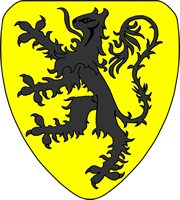Cathay
XML error: SYSTEM or PUBLIC, the URI is missing at line 1.
 | |
| Overview | |
| Island
Capital
Duchies
|
[[]]
|
| Council | |
| Regions | |
| UnknownSome use of "" in your query was not closed by a matching "". | |
Contents
The Kingdom of Cathay
History
Cathay was born out of a major conflict involving the Antozan Commonwealth and Lasanar, along with over a half-dozen other realms in the Far East Island. It then merged into the realm of Toupellon, but re-formed as the Free Kingdom of Cathay after Toupellon's collapse.
A detailed account of Cathay's founding and the events that led up to it can be read in the Cathayan Historical Archive.
The Crown of Cathay
Political Structure
Cathay is a Constitutional Monarchy. The Crown has final authority over most matters, but can be overruled by a 2/3 majority of the Royal Privy Council, which consists of all of the landed nobility of Cathay, along with its High Marshal, High Chancellor, and Royal Treasurer.
Laws of Cathay
Constitutional Monarchy
- Cathay is ruled by the Crown and the Royal Privy Council.
- Final authority rests with the Crown, but the Privy Council may overrule the Crown by a 2/3 majority vote.
The Royal Privy Council
- The Royal Privy Council shall include the High Chancellor, High Marshal, Royal Treasurer, all region lords, and one elected position to be voted on monthly (via referendum)
- There is no limit to consecutive terms of service.
- Every noble in the realm gets one vote of equal weight.
- In the instance of a tie or an unfilled vacancy, the Crown may appoint a noble to the Privy Council.
- Each member of the Royal Privy Council's vote has equal weight.
- In the instance of a tie, the Crown has final authority.
- A single individual may hold multiple titles, such as member of the Royal Council being a region lord as well, but is limited to one vote.
- Discussions in the Privy Council shall remain confidential unless cleared for public release by the Crown.
Code of Conduct
- Nobles are free to and encouraged to express their opinion in a constructive manner, but inflammatory or insulting statements may be referred to the High Chancellor for disciplinary action.
- All matters of state involving the law are to be handled by the High Chancellor. This includes decisions to be made in a manner fitting the situation as the High Chancellor decides, and punishment to be decided upon at the discretion of the High Chancellor. All decisions made by the High Chancellor are final .
- All nobles, be they of Cathay, an ally to Cathay, neutral to Cathay, or an enemy to Cathay, shall be treated in a manner befitting a noble. This includes, but is not limited to addressing nobles by their proper title, speaking with nobles in a respectful manner, and maintaining an appropriate level of decorum.
- Dueling to surrender is legal. Dueling to the death requires the permission of the Crown.
- Lords are responsible for the behavior of their vassals. At the discretion of the High Chancellor, a lord may share in a vassal's punishment if the lord is found to be lax in his responsibility for his vassal.
Feudal Oaths
- Feudal Oaths are to be sworn by every vassal to his liege annually.
- These oaths may either be made publicly, or merely before the vassal, liege, Lord Chancellor, King and witnesses.
- Whilst it is recommended that oaths be made in person, sealed letters may be used in absentia.
- The oath must satisfy both the crown, the vassal and the liege. Template oaths can be found here, any may be considered automatically approved by all parties.
- Violation of this oath will be punished to the fullest degree of the law.
Roleplaying Archive
Important, entertaining, or otherwise relevant roleplaying logs go here. Contact the council in-game if you wish to have yours added.
- The Ducal Propagandist is contacted regarding a liberal definition of "victory" before the third battle of Anacan.
- Parley before the battle in which Duke Galiard announces the allied armies and later explains the meaning of "fodder" to Dodd.
- The Crown of Cathay is Established in which a crown is minted and a realm is born.
- The Establishment of Cathay was to be a relentless task.
- The Rise of the Platinum Dragon is witnessed as a city gathers in support of a realm.
- The Steward of Anacan had seen many hardships in his life, and had always managed to make the best of them.
- The Cathay Chronicles Cathay's recently established newspaper. The first issue can be found here!
- Cathayan Historical Archive The Cathayan historical archive, holding the history of Cathay as it is made.